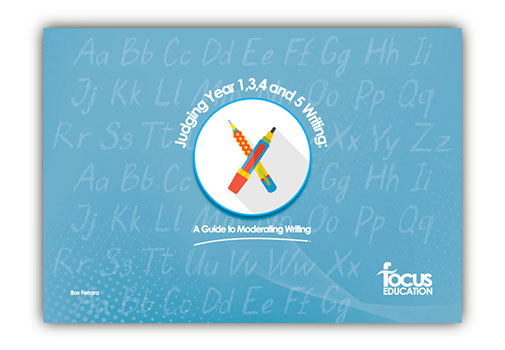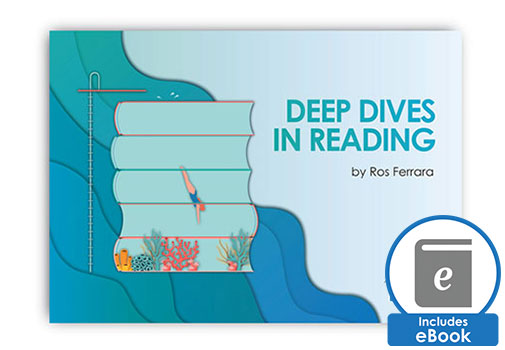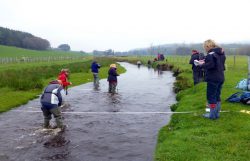
Leading English in a primary school is a vast undertaking and, with all the current shifts and changes with the implementation and embedding of the 2014 curriculum, it has become increasingly demanding.
An English leader needs to be organised and confident, but much more than that needs a passion for the subject, a deep knowledge and love of literature and the ability to enthuse and motivate not only children but also teachers in all aspects of English. In most cases, workload includes possibly full-time class teaching and all the responsibility that brings. In small schools, one person may have a range of curriculum responsibilities of which English is only one.
So, why would anyone want to take on this role, you may be asking? Because it is such an exciting role which allows creativity and innovation and, in the current climate, the opportunity to influence and drive the whole curriculum.
A High Profile Subject
In every aspect of the curriculum, English can be found. Our children need to be confident speakers, listeners, readers and writers and need opportunities to use and practise these skills in every subject. The English curriculum and the teaching of it has never been more high profile.
An English leader is a champion for the subject and must have excellent subject knowledge. You are the go-to person for all the staff!
The Essential Requirements for Leading English Effectively
A good knowledge of the English curriculum across the school; what should be taught and secured in each year group as well as the expectations in Early Years and how to manage the transition into Year 1 is essential.
You need to become a grammar geek and be able to explain grammatical rules and features and how to teach them effectively and in context.
You need to be clear about the role of spelling; how spelling skills develop and how they are taught alongside phonics initially, and then as discrete spelling sessions.
You need to understand how children become readers and how to engage and enthuse them as readers for life.
A deep knowledge of literature is vital. More and more, schools are putting literature at the heart of the curriculum and linking topic learning to high quality texts.
Knowing the range of books used across the school: as a core English text, in guided reading, a class read and poetry is important. You don’t want children working with Charlie and the Chocolate Factory in every year group!
Keeping up-to-date with children’s books is not always easy, although a lot of fun. Who wouldn’t enjoy a morning in a great bookshop browsing and reading? The problem is finding time! There are some excellent websites which can help. For example, www.lovereading4kids.co.uk and www.literacytrust.org.uk.
Twitter is a great source of information too. You can follow publishers and get relevant information about new books being published. Twitter is also a good way to keep informed about information released by the DfE and comments on educational issues by a range of professionals.
Remember
You are not expected to have all the answers, but to know where to find them!
Key Activities
A crucial part of a leader’s role is to be able to evaluate current provision and its impact and to be able to identify where to go next to improve pupil outcomes.
Undertaking regular monitoring activities as well as auditing provision will ensure that you have a clear picture and are able to evaluate the impact of actions or initiatives you have undertaken.
Focus Education has a range of audits which can be adapted and cover all areas of English: grammar, guided reading, writing etc.
Standards and Progress
This brings us to the thorny issue of assessment and data collection! As leader, you need to know what standards and progress look like across the school.
In our brave new world, this looks very different. There are few comfort blankets of brightly coloured spreadsheets, but rather percentages of children who are on-track to meet end of year expectations.
Regular book scrutinies focused on progress are a rich source of information and will also help to identify where pupils may have gaps or misconceptions and whether these are class, cohort or whole school related. They will also help to develop understanding of progress over the year.
As we approach the end of the year, judgements need to be made about children’s attainment against the year group expectations.
The publications Judging Year 1, 3, 4 and 5 Writing and Judging Year 2 and 6 Writing provide support for teachers of these year groups and also to English and assessment leaders.
They focus on the National Curriculum requirements and differentiate between writing that is not yet at the National Standard, writing at the National Standard and writing at greater depth within the National Standard. All year groups follow the format of the assessment frameworks for Year 2 and 6 in order to provide a consistent approach to the assessment of writing across the school.
We are still at the early stages of developing robust and effective assessment systems within this new curriculum and having a clear picture of what standards look like in each year group.
The list of responsibilities of the English leader is never-ending! However, the core purpose has to be capturing the hearts and minds of our children so that they not only make great progress, but also develop a love for reading and writing and all things English.
Useful Links
Some useful links for staying up-to-date with children’s books:
Support from Focus Education
Focus Education has also published several publications written by me, designed for English leaders and teachers. You can view the entire English range here. To purchase, please click here.
I have also written two publications around Judging Writing – for Years 2 and 6 and Years 1-4 and 5.
Ros has over 30 years’ experience working in teaching and leadership roles in schools, both nationally and internationally, as well as leadership roles within Local Authority advisory teams.
With extensive experience in all aspects of school improvement and contexts, as well as specialisms in English and EAL, Ros has developed inspirational, creative resources and training which puts English at the heart of the curriculum.









